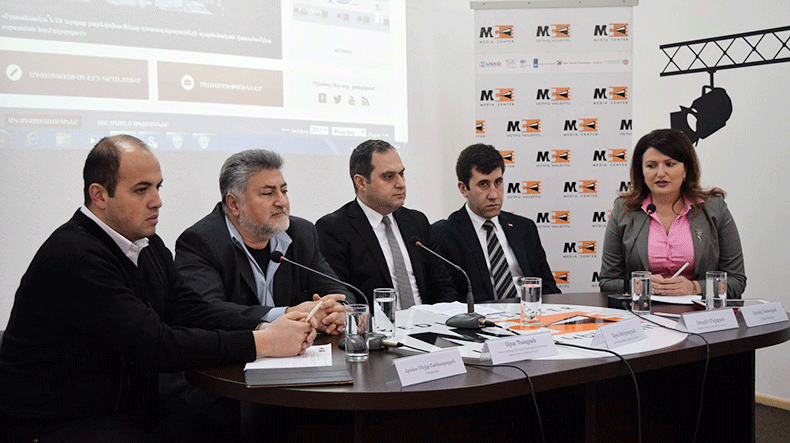
Experts analyze Azerbaijani ‘revolt’ against international human rights community
“Azerbaijan is reaching new heights in terms of systematic violations of human rights, raising eyebrows among the international human rights activists,” Ombudsman of the Republic of Artsakh Ruben Melikyan stated at a discussion devoted to Armenia’s counter steps amid Azerbaijani opening of criminal proceedings against members of the European Parliament.
“Azerbaijan has crossed the red line, meaning it is coming up with new challenges every time. This time they have challenged the European political community,” Melikyan said in his remarks.
The Artsakh Ombudsman went on listing the actions his office is set to carry out to present accessible information to the international community and cultivate motivation to keep the human rights issues in Artsakh in the spotlight.
“It will be either in the form of visits, academic research or through other means. Azerbaijani actions make us bring Artsakh in the focus of the international community, and we intend to make use of that to the best of our possibilities,” Melikyan explained.
The Chairman of Armenia’s Chamber of Advocates Ara Zohrabyan, present at the discussion, pointed out that Russian-Israeli blogger Alexander Lapshin who was earlier extradited to Azerbaijan, would likely turn into a ‘Trojan Horse’ in the hands of Baku officials.
“Ultimately, they will fail with the Lapshin case,” Zohrabyan said, adding Baku actions will eventually reveal Azerbaijani posture of an aggressor in the eyes of international community for persecuting people for political views.
Zohrabyan next reflected on the criminal proceedings instituted against the European Parliament members (EP) Frank Engel (Luxembourg), Eleni Teoharus (Cyprus), and Jaromir Stetin (Czech Republic) for monitoring the referendum in the Nagorno Karabakh Republic, questioning the lawfulness of the decision.
In particular, Zohrabyan informed that Azerbaijan cites the alleged violation of the Article 318 of its Criminal Code, - “violation of its state border” - while the reality is that the Artsakh border is in no way controlled by Azerbaijan.
Zohrabyan reminded that the European Convention [of Human Rights] strictly prohibits politically motivated discrimination.
“In the case under consideration the European parliamentarians visited Artsakh Republic to participate in an important political event, where people expressed their views. Instituting a criminal proceeding for merely participating in the event [referendum in Artsakh] is a clear violation of the principle of non-discrimination,” Zohrabyan analyzed, suggesting Azerbaijan has ‘zero chances’ with the international arrest warrant for the parliamentarians, since Interpol charter prohibits any cooperation for possible extradition involving political motivation.
Related news
Newsfeed
Videos






























